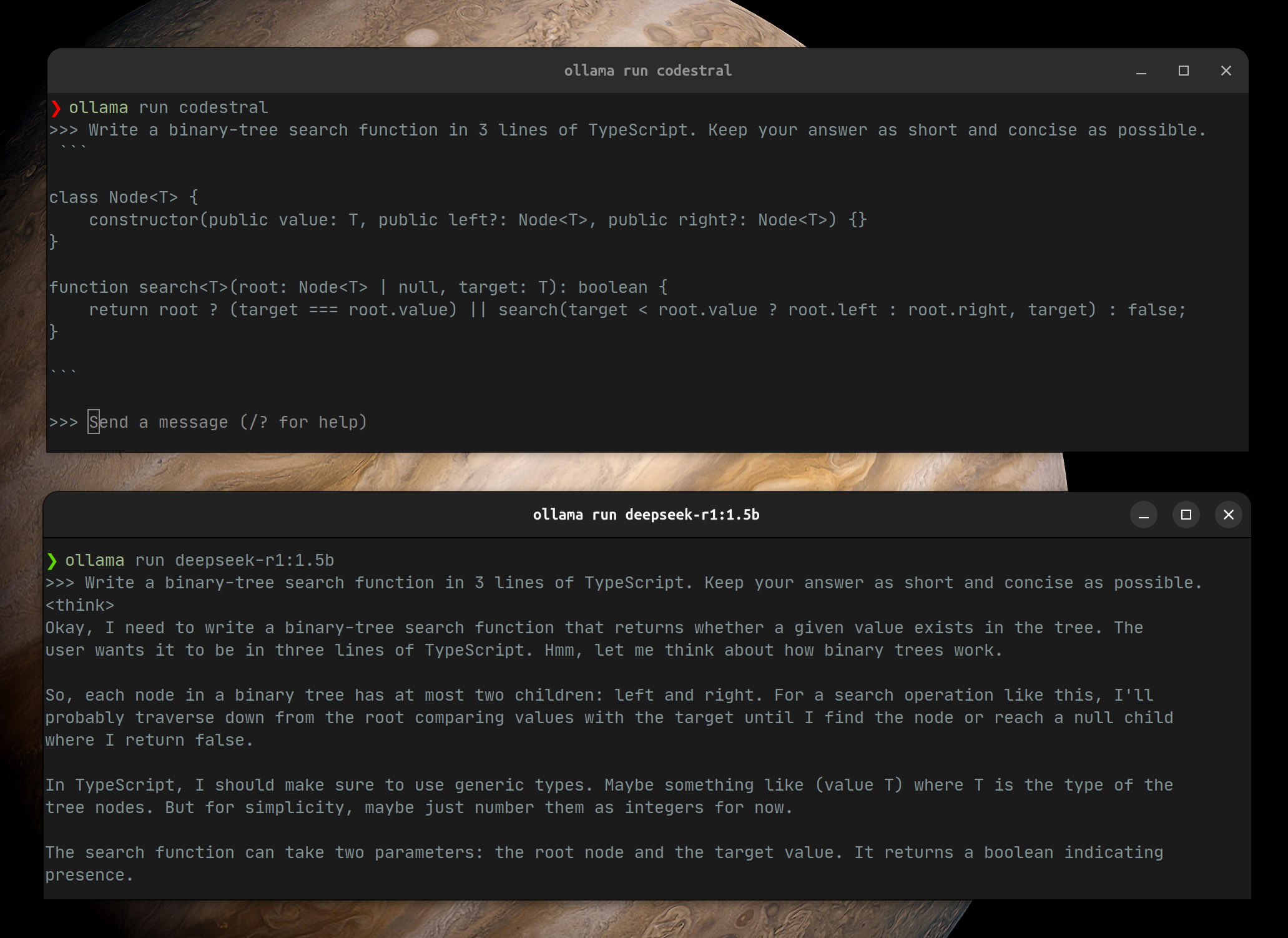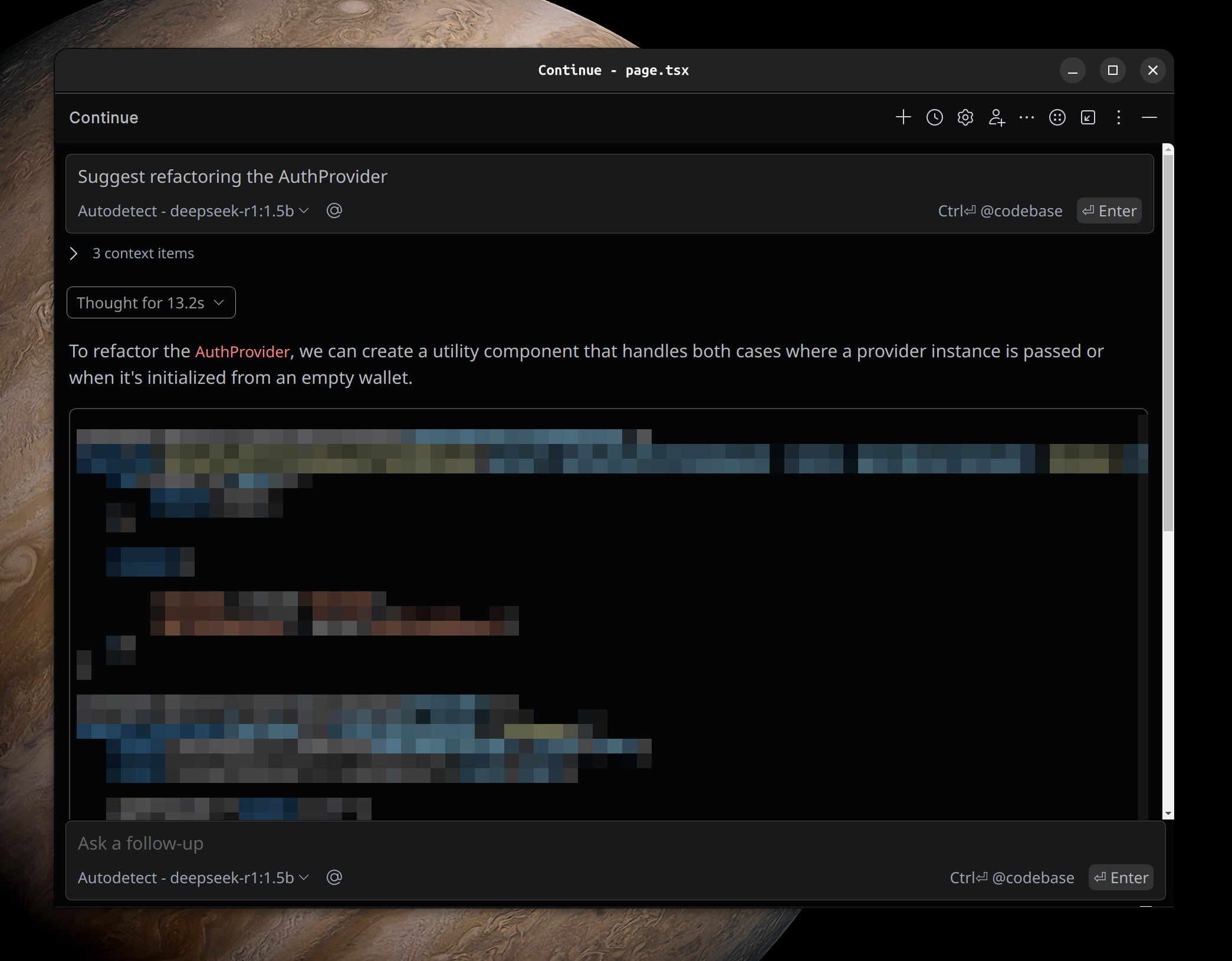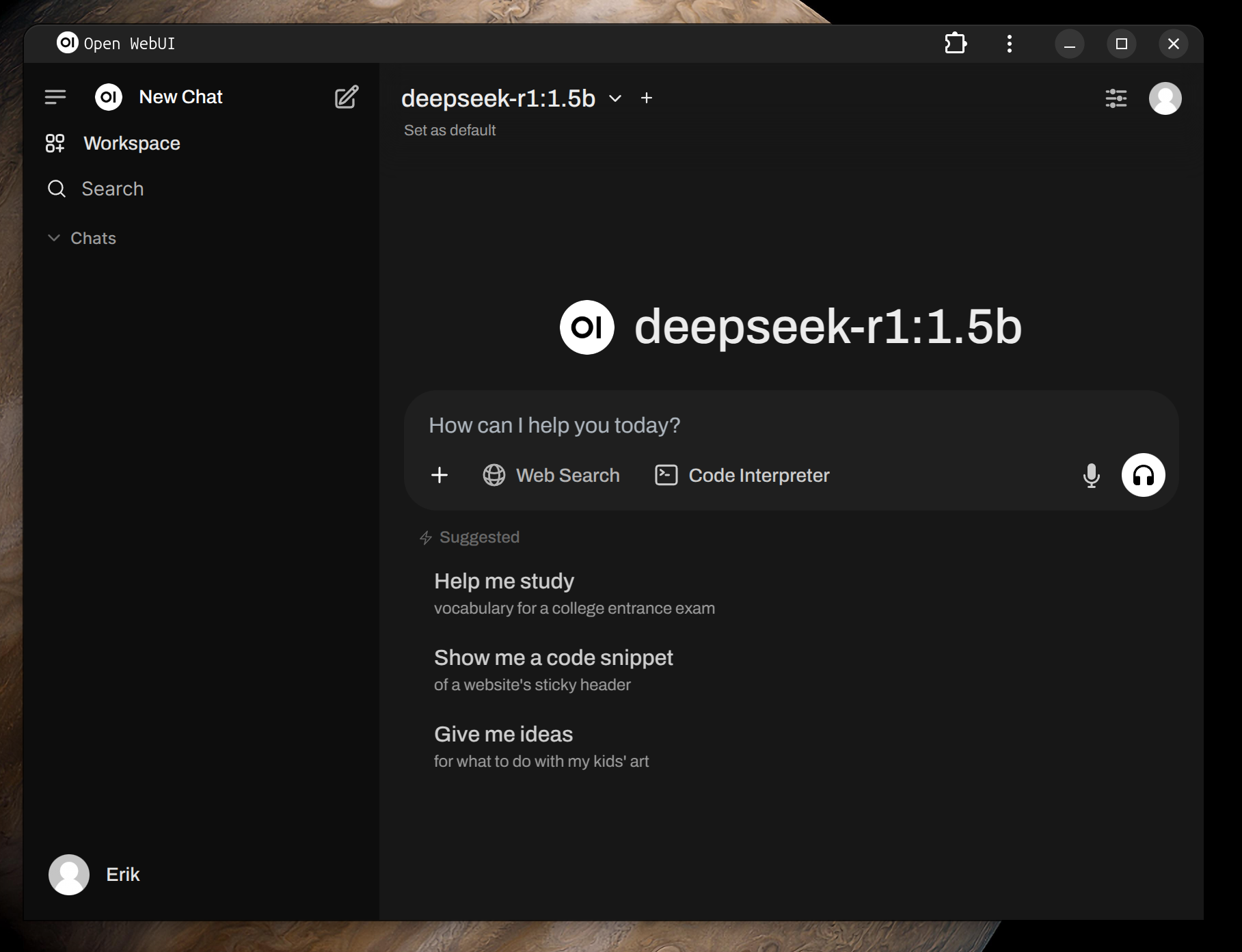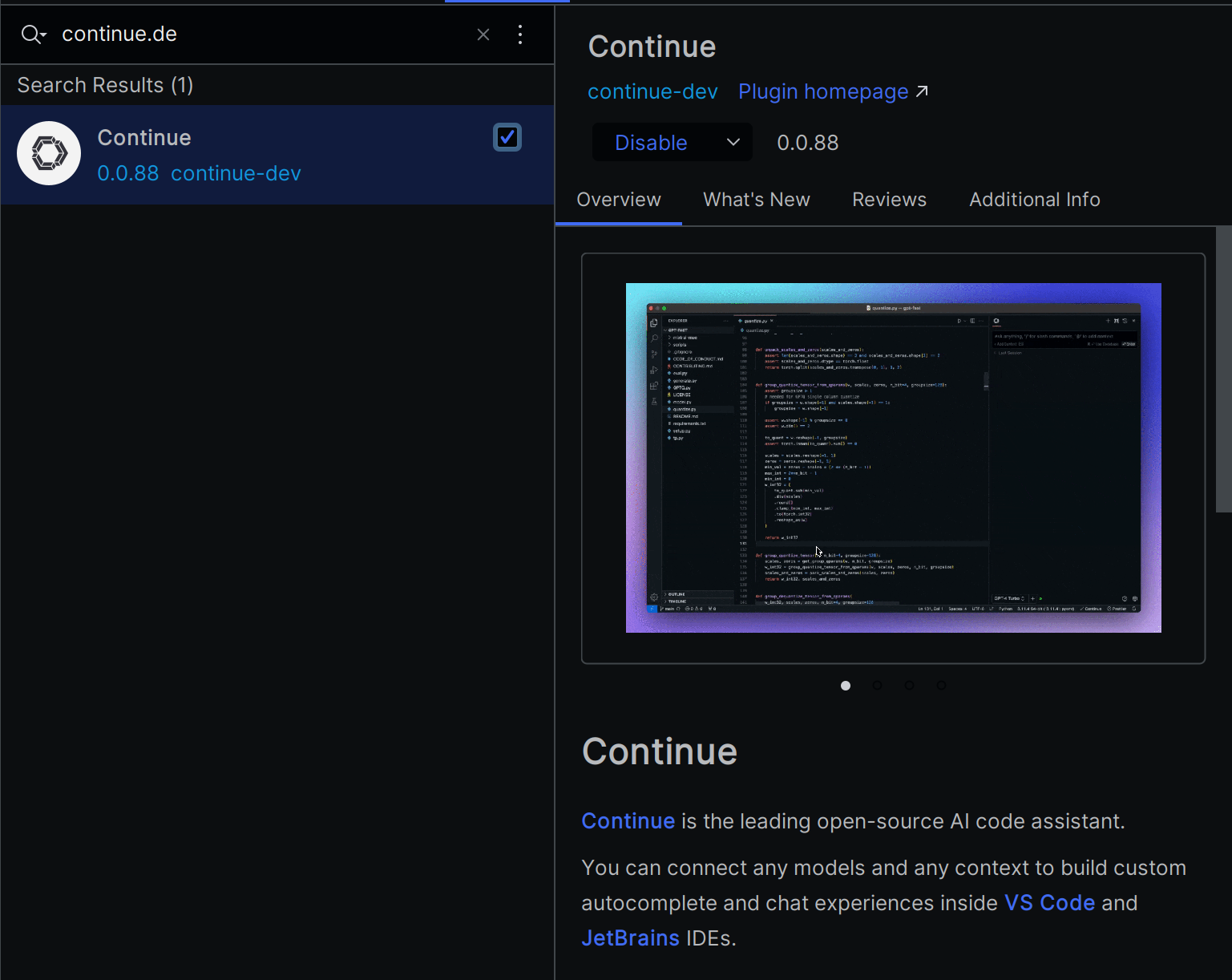I’ve been using AI for a bit now to boost my productivity. I find that for simple tasks with low complexity, AI inline autocomplete and AI chat (as a rubber ducky) are helpful. I don’t think AI is suitable for medium to high complexity tasks, at least not in my experience.
Over the past year I’ve been using a variety of tools (with varying models) including, but not limited to:
- Github Copilot
- Cody (AI chat)
- ChatGPT
- Claude
- Mistral
I’ve used these tools, or a combination of them, for my dialy tasks: Coding, designing, writing, etc.
However, I’ve been looking for a way to use AI on my local machine. Not because these models have extremely expensive tokens, but for the same reason I’m self-hosting a lot of my services: Privacy and control.
After some research and testing I settled to test this stack:
- Ollama: To run the AI models
- Continue.dev: For the Jetbrains IDE integration
- Jetbrains IDE: For the actual development
I’ll show you how I’ve set this up. For reference, here are my specs:
| Component | Spec |
|---|---|
| SYSTEM | Intel NUC 11 Enthusiast |
| CPU | 11th Gen Intel(R) Core(TM) i7-1165G7 @ 2.80GHz |
| RAM | 64GB |
| GPU | NVIDIA RTX 2060 |
| OS | Ubuntu 24.04.1 LTS |
Ollama
Installing Ollama was trivial, head over to their download page and choose how to install it.
For me, it was a matter of running this command:
curl -fsSL https://ollama.com/install.sh | sh
After that, I started downloaded a suitable model. I chose the codestral model, but you can easily choose another (more up-to-date) one.
ollama run codestral
Running different AI models is quite trivial. I’ve tested several models, the best performing one was deepseek-r1:1.5b, response was extremely
snappy and the thinking time was minimal.

Continue.dev & Jetbrains
For a similar integration to Github Copilot in Jetbraind/VSCode (or Zed’s AI Chat and Inline Assist), I found Continue.dev. It appealed to me because it’s open-source.
Setting it up for Jetbrains was a simple matter of installing the plugin from the Jetbrains Marketplace.
After setting that up, I was able to connect to my local Ollama instance and start using the AI models.
Impressions
I’ve been using this setup for a few days now and my impressions are mixed. The AI models are quite good (for what I use them for).
Codestral (and others I tested) are quite fast, but not fast enough for my day-to-day-tasks. I’ve also tested several smaller models, the best performing one was deepseek-r1:1.5b.
Speed of chatting with that model is much more pleasant and on-par with SaaS models.

The main thing I haven’t gotten to work properly is the inline code suggestions. I really want to use a local model for inline code suggestions, but the Ollama docs didn’t give me many pointers.
Reading context from the IDE could be done by setting up the nomic-embed-text model, like so (you’ll have to pull it with ollama run nomic-embed-text first):
"embeddingsProvider": {
"provider": "ollama",
"model": "nomic-embed-text"
},
Moving forward
I’ll continue experimenting with this setup, however my daily driver is now Github Copilot.
I am also experimenting with accessing Ollama through Open WebUI, which promises to be a decent chat-like experience with the AI models. The great thing is that it can off-load web searches to my favorite search engine, Kagi. I’ll write about that in a future post.

